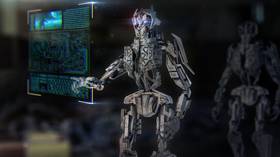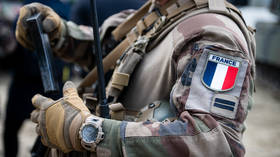Man vs machine: Russian scientists develop AI that can assess and train human cognitive abilities through simulated combat

Russian researchers have created a computer game which can assess a human player's decision-making speed and their powers of prediction, using trials by combat against an AI-powered opponent.
The team at the Moscow State University of Psychology and Education (MSUPE) sought to measure the human players’ numeracy skills, logical ability, reaction times and predictive intuition while making decisions under rapidly changing conditions.
The humans were confronted by multiple active AI-powered opponents governed by a complex mathematical algorithm. Their task was simple: eliminate all AI opponents on the limited playing field.
Also on rt.com Coronavirus inspires DYSTOPIAN new AI social-distancing enforcement tool (VIDEO)That was easier said than done, however, as the AI opponents adapted to each specific human player and 'learned' their moves, developing counter strategies on the fly which depended on the complexity of the human's tactics.
The study's authors highlight that the game could serve as a means of testing and training humans involved in a wide array of technical roles, such as operating bomb disposal robots or even piloting drones.
"The difficulty in developing such psycho-diagnostic tools is the accumulation of a large volume of empirical data to correctly configure adaptive procedures. So far, we are using mathematical optimization to compensate for the lack of data on testing people from representative groups," Pavel Dumin said.
The team plans to refine the simulation and the AI system even further and begin additional testing in the near future.
Think your friends would be interested? Share this story!















